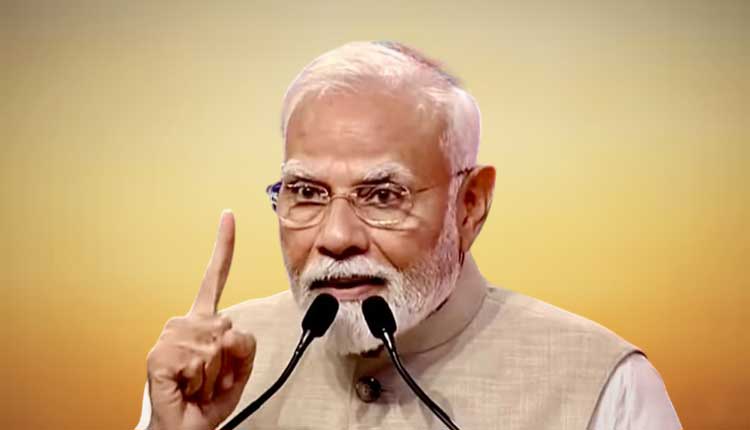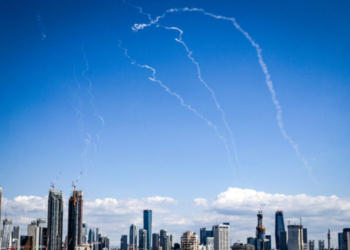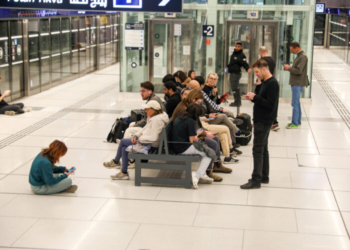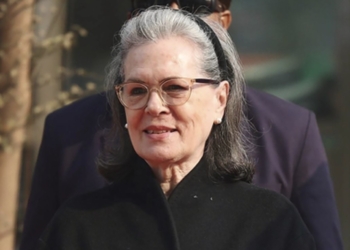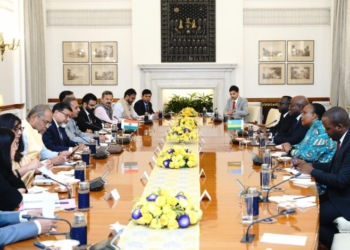New Delhi: Prime Minister Narendra Modi and his British counterpart, Keir Starmer, engaged in a telephone discussion on Tuesday, during which they celebrated the successful conclusion of the ambitious and mutually advantageous India-UK Free Trade Agreement, alongside the Double Contribution Convention.
Addressing a gathering at the India @2047 event, PM Modi confirmed that India and the UK have officially signed the trade pact.
“Today, marks a historic milestone for India. Just moments ago, I spoke with the Prime Minister of the UK, and I am pleased to announce that the India-UK pre-trade agreement has been finalised,” PM Modi said.
This landmark trade accord, the Prime Minister said, would usher in a new era of economic growth for both nations, providing a significant boost to India’s economy and creating fresh opportunities for Micro, Small, and Medium Enterprises (MSMEs).
Additionally, India has successfully established trade agreements with several other countries, further solidifying its position as a dynamic and thriving global trade and commerce hub.
“Making bold decisions and setting ambitious goals is essential. Our nation’s progress must always be the top priority, ensuring that each step we take brings greater prosperity and lasting benefits for our people,” PM Modi said.
Both leaders hailed the agreement as a historic milestone in the evolving bilateral Comprehensive Strategic Partnership, emphasising its potential to foster trade, investment, innovation, and job creation across both economies.
They agreed that this landmark arrangement between two of the world’s largest and most dynamic markets would unlock fresh opportunities for businesses, strengthen economic ties, and enrich people-to-people connections.
Prime Minister Starmer, quoted in an official statement, reaffirmed that enhancing alliances and dismantling trade barriers with global economies aligns with the UK’s ‘Plan for Change’, aimed at delivering a stronger and more resilient economic future.
The leaders underscored the vital role of expanding trade and commercial relations in deepening the already robust and multifaceted India-UK partnership. They expressed optimism that the newly forged Free Trade Agreement – balanced, equitable, and forward-looking – would significantly boost bilateral trade, open new avenues for employment, raise living standards, and contribute to the overall well-being of citizens in both nations, the statement said.
Additionally, the pact is expected to spur collaborative innovation between India and the UK, paving the way for the joint development of goods and services tailored for international markets.
This agreement reinforces the strong foundations of the India-UK Comprehensive Strategic Partnership, setting the stage for a new era of economic cooperation and prosperity.
The deal arrives at a pivotal moment in global trade, amid significant upheaval in economic policies initiated by former US President Donald Trump. His sudden imposition – and subsequent suspension – of high tariffs on numerous nations introduced widespread uncertainty, which analysts suggest may dampen investment prospects and slow economic growth worldwide.
Following three years of rigorous negotiations, the British government estimates that the agreement will elevate bilateral trade by £25.5 billion ($34 billion).
In the lead-up to the pact’s finalisation, Britain’s Business and Trade Secretary Jonathan Reynolds and India’s Commerce Minister Piyush Goyal engaged in extensive discussions last week to iron out certain issues.
Trade between India and the UK – two of the world’s fastest-growing economies – remains a crucial driver of their relations.
According to British government data, last year’s trade in goods and services between the two nations amounted to $57 billion. A key component of the agreement sees India reducing tariffs on 90 per cent of goods, with most expected to become tariff-free within a decade.
If insiders in government are believed, duties on certain goods will be reduced significantly, like the tariff on cars is currently 100 per cent, and will be reduced to 10 per cent. Similarly, liquor, food products, apparel, and footwear will have a lowered tariff.
The signing of the trade agreement marks a significant shift in global economic dynamics, as more nations seek to strengthen their alliances with India.
(IANS)




